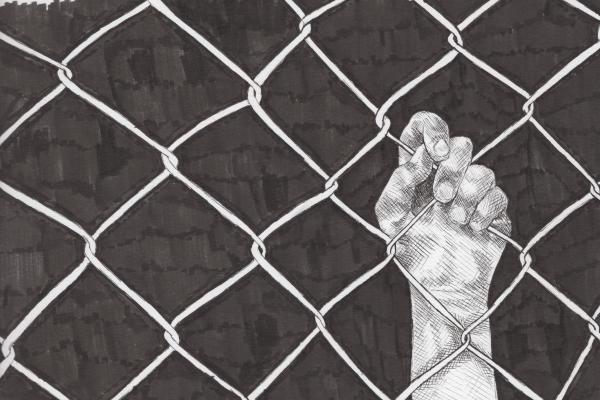I didn’t grow up fasting for Lent, but between influence from my Catholic friends, Christian reading materials and radio shows, and my desire to be the most devout Christian I could be, I picked the practice up along the way.
It started somewhat shallow: I always attempted to pick something that would hurt just enough to still feel virtuous. One year I gave up buying clothes for Lent. Another year I fasted from both chocolate and peanut butter (then ate so much of both things Easter morning that I made myself sick). I had friends who fasted from soda or sugar, from boys or meat, and one friend who fasted from doing illegal things and spent all of Lent driving under the speed limit.
I want to be careful not to belittle others’ faith practices and the ways they experience God, but some of these fasts seem like excuses to get good habits back on track. Even though our intentions may be sincere, some of these fasts actually serve our own interests, centering a holy time for reflection instead on ourselves.
Isaiah 58 talks about a fast that loosens the bonds of wickedness. It undoes the straps of the heavy yokes that keep people oppressed and let them go free. It leads to food for the hungry, a home for the homeless, clothing for those without, and restores families. God says forthrightly, “This is the fast I desire.”
This passage says we answer the call when we take away the yokes of oppression, stop pointing fingers and speaking wickedly. Our fasts please God when we satisfy the desires of the afflicted — not just giving them what we think they need or deserve, but finding their desires and satisfying them.
This jumping off point of what a fast should look like is very different than my young adult determinations of what I, in all of my privilege, could choose to go without for 40 days.
What if our fast took the frame of discerning the fast God desires — to meet the needs of others? What if we viewed our fasts as a way to establish justice and bring God’s goodness to the world instead of seeking our own piety?
What if we fasted from accepting the status quo of abuse by corporations and those with power?
What if we fasted from self-preservation and safety as our highest priorities?
What if we fasted from seeing mindless consumption as recreational?
What if we fasted from buying items that are made by slaves or other exploited workers?
What if we fasted from indifference toward people in poverty and imprisoned and instead sought to understand a society that perpetuates inequality and profits from it?
What if our fast propelled us to visit prisons, advocate for a better criminal justice system, and abolish the death penalty?
What if our fast led us to see neighbor justice as part of our faith duty? What if it led us to advocate for health care for all, good health, and wellness in our communities?
What if our fast helped sustain life for others and sought to overcome evil with good?
What if our fast kept families together and thriving?
What if our fast ended with us feeling more capable and adept at welcoming strangers?
What if our fast left more people in our communities fed, cared for, and with a safe place to sleep?
What if our fast left us determined to not look away from the things that hurt our heart or the problems that seem overwhelming to solve?
God has told us the fast that is desired, what is asked of us, and what the results should look like.
The avenues and possibilities are endless for how and what we should fast from if we take a cue from Isaiah and look at the fast the Lord desires and shape our actions based on the words we find there.
How can our fast break the yoke of oppression? Set the captives free? Feed the hungry and clothe the naked?
May we start asking these questions this Lent, and never stop until the kingdom comes.
Got something to say about what you're reading? We value your feedback!






